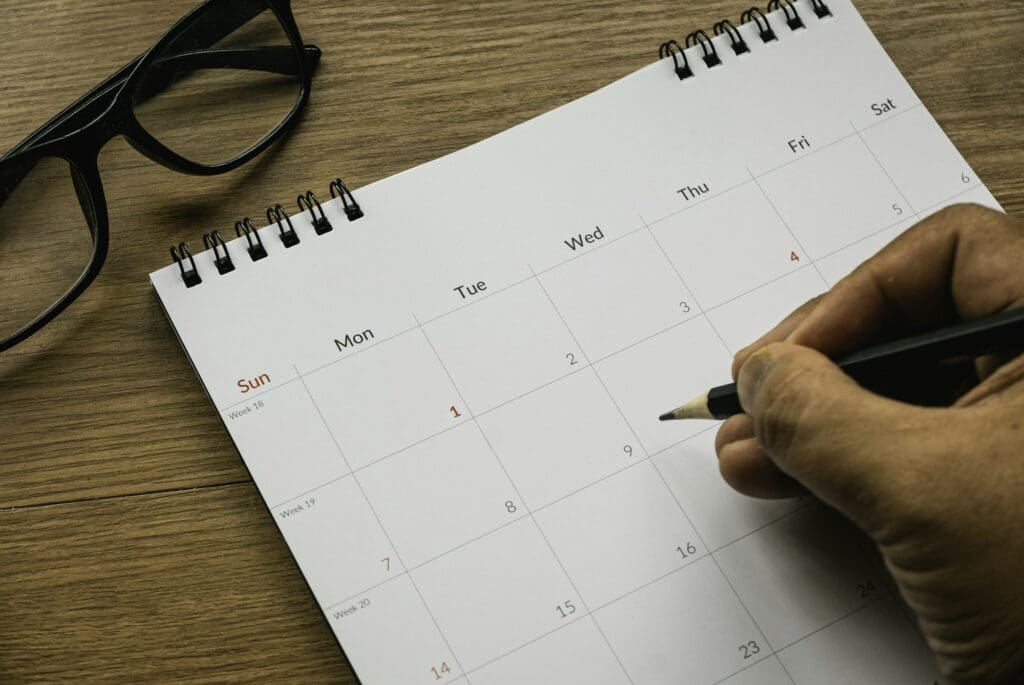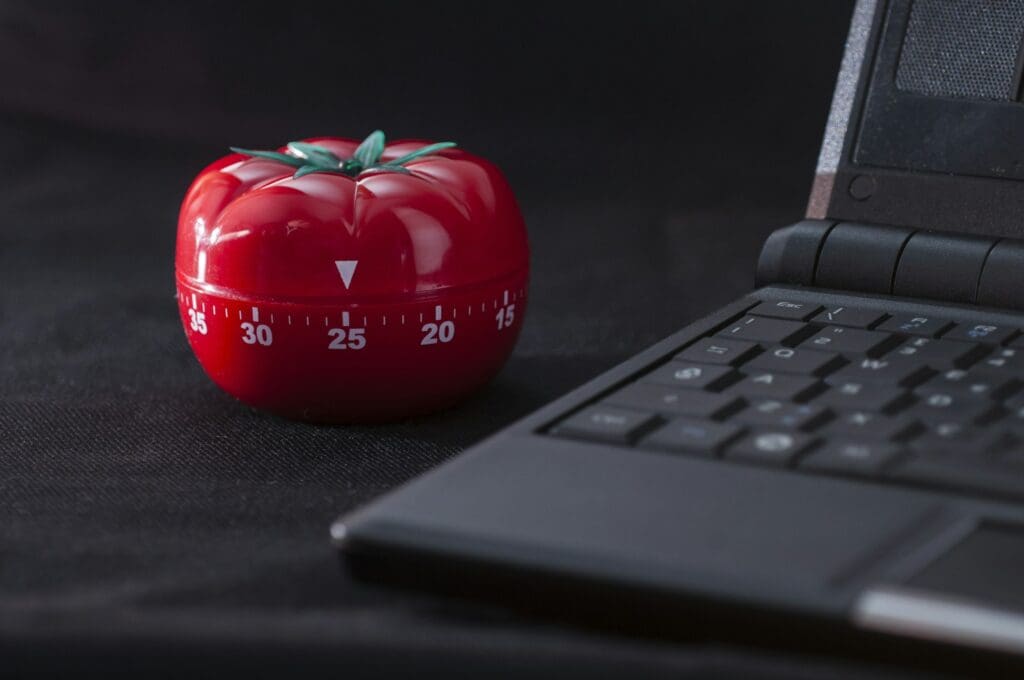


Feeling overwhelmed by your to-do list? Managing your time effectively can seem like an uphill battle, especially with the constant juggling of tasks, deadlines, and personal commitments.
But when you master the art of time management, it can transform not just your productivity, but also your well-being. Imagine a day where you end your work feeling accomplished rather than drained. Sounds appealing, right?
“The key is not to prioritize what’s on your schedule, but to schedule your priorities.” – Stephen Covey
In this article, you’ll find practical strategies to help you take control of your time. By integrating these techniques into your daily routine, you can reduce stress and create a more productive, balanced life. Let’s dive in and discover how managing your time doesn’t just save minutes—it enriches your entire day.

Effective time management is more than just keeping a to-do list; it is about structuring your day to achieve balance and maximize productivity without feeling overwhelmed. A well-planned schedule can significantly reduce stress by giving you a clear roadmap of what needs to be accomplished.
When tasks are clearly defined and organized, the feeling of chaos diminishes, allowing you to focus better and work more efficiently. This can prevent the common pitfall of procrastination, which often leads to a cycle of stress and missed deadlines.
On the flip side, poor time management can elevate stress levels and contribute to feelings of being out of control. When you fail to allocate your time properly, important tasks may be overlooked or rushed at the last minute, increasing anxiety and frustration.
The constant pressure of looming deadlines can also impede your ability to focus, leading you to make more mistakes or produce lower-quality work.
Interestingly, research indicates that individuals who manage their time well feel a greater sense of accomplishment and satisfaction in their daily lives.
This, in turn, can lead to improved mental well-being and overall happiness. Effective time management is not just a skill—it’s a lifestyle choice that can positively impact every aspect of your life, from professional success to personal fulfillment.
Understanding the relationship between time management and stress can be the first step towards making meaningful changes in your life.
By recognizing how your current habits contribute to your stress levels, you can begin to adopt new strategies that promote a healthier balance. Whether it’s through structured planning, goal setting, or the use of time management techniques, taking control of your time is essential to reducing stress and enhancing productivity.
Creating a daily schedule isn’t just about filling every hour with tasks; it’s about structuring your day to maximize both productivity and well-being. Start by assessing your peak productivity times.
Are you an early bird or a night owl? Understanding when you’re most alert and focused can help you schedule high-priority tasks during these periods.
Next, break down your tasks into manageable chunks. Use the ABC method to categorize them. Assign ‘A’ to tasks that are urgent and important, ‘B’ to those that are important but not urgent, and ‘C’ to tasks that are neither urgent nor important.
This simple practice will help you visualize your priorities and direct your energy where it matters most.
Don’t forget to allocate time for breaks. Studies show that regular breaks can significantly boost productivity and reduce stress. Incorporate short intervals of relaxation to recharge and prevent burnout.
Additionally, build in buffer times between tasks. Delays and overruns happen, and having those extra few minutes will prevent your schedule from falling apart at the first sign of trouble. Planning these buffers also gives you time to reflect, adjust, and stay on track.
Finally, review and refine your schedule regularly. What worked this week might not be as effective next week. Keep evaluating and adjusting your plan to adapt to new challenges and opportunities.
Remember, effective time management is an ongoing process that evolves with your personal and professional growth.

Setting SMART goals can provide a clear direction and help you stay focused on what’s important. SMART stands for Specific, Measurable, Achievable, Relevant, and Time-bound. Here’s how you can harness its power:
Specific: Define your goal with precision. Instead of saying “I want to improve my skills,” say “I want to complete an advanced Excel course.” Specificity helps eliminate ambiguity and provides a clear path forward.
Measurable: Measure your progress to stay motivated. If your goal is to finish the course, set milestones such as completing five modules each week. This way, you can track your advancement and celebrate small victories.
Achievable: Set realistic and attainable goals. Assess your resources and constraints to ensure your goals are within reach. For example, if you’re working full-time, planning to finish a course in a week might be unrealistic. Instead, aim for a month.
Relevant: Your goals should align with your broader objectives. Ask yourself if the goal is important and applicable to your long-term plans. If your aim is to get a promotion, an advanced Excel course should be directly beneficial to that objective.
Time-bound: Give yourself a deadline. This creates a sense of urgency and helps prioritize your tasks. Instead of saying “I’ll finish the course,” set a deadline like “I will complete the advanced Excel course by the end of the month.”
By setting SMART goals, you set a structured plan in motion. This method not only clarifies your direction but also mitigates stress by breaking down tasks into manageable and measurable steps.

Boosting productivity isn’t just about working harder; it’s about working smarter. By managing your time effectively, you can make significant strides in both your personal and professional life, achieving more with less stress.
This means setting realistic goals, leveraging technology, and making conscious choices about how you spend your time. Curious about how to transform your daily routine? Let’s explore a few powerful strategies to supercharge your productivity through mindful time management.
Mastering your time can feel like a daunting task, but with the right strategies, it’s entirely achievable. By implementing intentional techniques into your daily routine, you can find yourself not only reducing stress but also increasing your productivity significantly.
Let’s delve into practical ways you can start managing your time more effectively to meet your goals and bring balance to your life.

In today’s fast-paced digital world, leveraging technology can be a game-changer in managing your time efficiently. By integrating the right tools and apps into your daily routine, you can automate repetitive tasks, stay organized, and ultimately enhance your productivity.
Let’s delve into how technology can help streamline your workflow and make your life easier.
Sleep is often overlooked when discussing time management, yet it’s a fundamental element that can either make or break your productivity.
When you’re well-rested, your cognitive functions, such as memory, decision-making, and problem-solving, are enhanced, allowing you to tackle tasks more efficiently.
Conversely, lack of sleep can lead to decreased attention, slower reaction times, and increased errors, which can amplify stress and reduce your effectiveness.
To leverage the benefits of sleep, aim for 7-9 hours of quality rest each night. Create a consistent sleep schedule by going to bed and waking up at the same time every day, even on weekends.
Consider implementing a calming bedtime routine to signal your body that it’s time to wind down. Activities such as reading, taking a warm bath, or practicing mindfulness meditation can make a significant difference.
Avoid screens, caffeine, and other stimulants before bed, as they can interfere with your ability to fall asleep.
Remember, rest isn’t just about quantity; quality matters too. If you find yourself tossing and turning, your sleep environment could be to blame.
Ensure your bedroom is dark, quiet, and cool. Investing in a comfortable mattress and pillows can also improve your sleep quality significantly.
In summary, prioritizing adequate and quality sleep is a crucial strategy for maintaining high productivity and reducing stress. By incorporating good sleep hygiene into your daily routine, you set a solid foundation for effective time management and overall well-being.

Absolutely! Effective time management techniques can significantly reduce stress by providing structure and clarity to your day.
When you plan your tasks, set goals, and prioritize effectively, you can avoid the last-minute rush and the feeling of being overwhelmed.
These techniques help you stay organized, allowing you to approach your work with a clear mind and calm demeanor. Moreover, managing your time well ensures you have space for breaks and personal activities, which are crucial for maintaining mental health and overall well-being.
By practicing these techniques, you not only improve productivity but also create a balanced lifestyle that supports stress reduction.
Balancing your workload effectively is key to reducing stress and boosting productivity. Start by breaking down your tasks into manageable chunks. This makes large projects feel less overwhelming and easier to tackle. Utilize the ABC method to categorize tasks based on their importance and deadlines. Always prioritize critical tasks (A tasks) before moving on to less urgent ones (B and C tasks).
Next, set SMART goals (Specific, Measurable, Achievable, Relevant, Time-bound) to give your tasks clear direction and purpose. This makes it easier to track progress and stay motivated. Allocate specific time blocks for different tasks and stick to them as much as possible. This can prevent the feeling of being overwhelmed and ensure steady progress throughout your day.
Consider using productivity apps to streamline your tasks and keep track of deadlines. These tools can help you visualize your workload and keep everything organized in one place. Remember to incorporate regular breaks into your schedule to avoid burnout. Short breaks can refresh your mind and improve focus when you return to your tasks.
Lastly, assess your progress regularly and be flexible enough to adjust your strategy if something isn’t working. Continuous evaluation and adaptation of your time management plan ensure that it remains effective and aligns with your goals.
In essence, mastering time management is a continuous journey that significantly impacts your stress levels and productivity. By applying techniques like the Pareto principle, adhering to SMART goals, and leveraging technology, you can chart a course towards a more organized and fulfilling life.
Remember, the aim isn’t to fill every minute with tasks but to prioritize effectively, ensuring that your efforts generate the best outcomes.
Incorporating these strategies can help you create a balanced routine, mitigate stress, and boost your productivity in both personal and professional spheres.
Consistently evaluate and adjust your strategies to find what works best for you. Over time, you’ll find yourself more in control, less stressed, and more capable of achieving your goals.
Now, armed with these insights and tools, it’s time to take control of your schedule and make time work for you. Start today, and watch how effective time management transforms your life!









